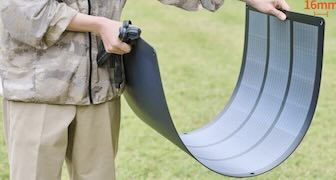Jul 12 (Reuters) - For half a century, Takeo Nakajo has been catching katsuo, or skipjack tuna - indispensable in Japanese cuisine whether eaten raw, dried or used as a base for the broth.
But he and other fishermen in Kure, in Kochi prefecture in southwest Japan, have seen something worrying in the past two years - an unprecedented number of unusually fatty katsuo.
While heavier katsuo means more money, locals and experts say it indicates climate change and a risk for katsuo numbers already under threat due to growing demand and overfishing.
Originally from tropical waters, some Pacific katsuo migrate northward on a warm ocean current every spring, making Kochi's arc-shaped bay a fertile fishing ground.
The average surface temperature of the bay in winter has risen by 2 degrees Celsius in the four decades to 2015, local fisheries lab data shows, and the fatter katsuo may be due to ample prey in the warmer sea.
But longer term, this warming may prevent mineral-rich water from rising to the surface, resulting in a drop in plankton and smaller fish to feed on, leading to fewer katsuo, said Hideyuki Ukeda, an agroscientist and vice president of Kochi University.















